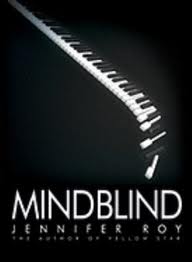I am the mom of an amazing boy, who was diagnosed with Asperger’s Syndrome and ADHD at age 6. His dad and I were clueless about his condition until his Kindergarten teacher was brave enough to share her suspicions with us. My first reaction was What? and then it dawned on me how much sense it made. All our years of struggling with our boy, thinking he had Opposition Defiance Disorder because no discipline strategy ever worked! Without even knowing what Asperger’s was, I knew in my gut, his teacher was correct.
As most moms, I started dreaming about my son’s future the moment I found out I was pregnant; pondering the choices he would make, hoping he would be happy and safe throughout his life. Now the fact is: IT’S NORMAL to mourn the loss of those hopes and dreams when your child is diagnosed with a condition that shatters the future you envisioned for them. It felt like my child had died, at least the child I thought he was. I mourned for weeks, maybe months, and then I was feeling guilty for feeling this way. On top of that, our son was now too old to be accepted into early intervention programs, we only had health insurance for 2 years, so therapies would have to be paid out-of-pocket, the private school he was in couldn’t give him any services… I felt alone and hopeless and often cried “why me?”
But after my time of grieving and anger was over, I knew it was time for an attitude change. There was no way I would be able to convince my son, my family, and our community that my child was capable, valuable, wonderfully different, and worthy of love, if I didn’t believe it myself. So I started reading, digging, asking, searching, testing, and reading more. It was overwhelming!
I looked for a support group in the local community and finally found one after 12 months of searching. I have been so thankful for this group. It was the first time I found sympathy rather than judgment. I had to come to terms with the disapproving looks from strangers, the “helpful” advice from relatives, the random people who knew just what therapies and supplements would “heal” my son. Having a support group, even if it’s online, is very important. Your most caring and well-meaning friends and relatives cannot replace the support of those who have been in your shoes and can reassure you – you are going to be OK.
We also (very hesitantly at first) got him involved in Special Olympics at age 8. It turned out to be a great experience for him. We discovered early on that rec center sports and team sports were not his thing, so finding groups that would accept my son with his different learning skills, was the only way he could try out all different kinds of sports – very important for an ADHD kid Not surprisingly, he gravitated towards individual sports, like running, swimming, gymnastics, and track.
It is important to remember, that your child isn’t disabled or handicapped, but their brain is wired differently and is developing at a different pace and direction than others. This can be a blessing and a challenge. Focus on the blessing of their “one-track-mind”, it can absolutely lead to greatness, then deal with the challenges as they surface. I found it helpful to read books written by Temple Grandin, Anita Lesko, Aaron Likens, and John Elder Robison. Us moms need hope and encouragement as much as we need information and knowledge. That’s why I prefer to read personal success stories over how-to advice from experts.
Then there came the issue of how to tell my child why he doesn’t fit in, feels different, and always on the outside – looking in. First, I used the book “The way I feel” to help him identify emotions. Then, I actually made a picture book about him, very simple, very cheap (printable photo book from Walmart). He thought it was great to have a “real” book about himself. Our son caught on fairly early what Asperger’s and ADHD was, thanks to this book. The challenge was, and continues to be, helping him differentiate what behaviors and habits are caused by his diagnosis, and which ones he can control and needs to change. We will not accept him using Asperger’s as an excuse for bad behavior, however we do need to help him find acceptable alternatives, as he has to have an outlet for his frustrations.
Our son just doesn’t fit the mold. He is different from “normal” children, but also different from other “aspie” children. His set of strengths and challenges are unique to him. I choose to believe that he can accomplish great things, not just spite his shortcomings, but BECAUSE of them. Aspie individuals are usually highly focused and motivated within their area of interest, which easily make them the leading experts in their field, especially within science and technology. And because their brains are wired differently, they are able to think outside to box, making them great inventors and engineers.
My boy inspires me. He shows such courage in overcoming obstacles that seem small to most, but I know are huge in his world. He has had some great teachers and mentors that have helped him grow into a happy and fairly confident young man. We do the best we can, we are far from perfect, but we receive great hope and joy in the small things, and THAT is no small thing!






